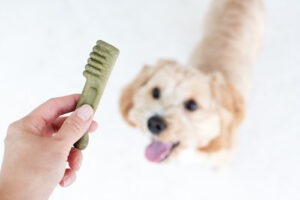VMC’s Top Tips for Winter Horse Care
- Water
The risk of impaction colic increases as the temperatures drop and horses drink less. The average horse (1000lb) needs to drink 10-12 gallons of water per day. In winter we feed dried feeds such as grains and hay which are much lower in water content than grass. Because of this your horse is going to need to drink more water.
Keep horses’ water between 45- and 65-degrees F, provide salt, and keep waterer clean.
- Feeding
Lower temperatures mean additional dietary needs in order for horses to maintain adequate body temperature. Feeding more grain is not enough to keep your horse warm. Feeding additional hay increases fermentation and keeps your horse warm. The lower the temperature goes the more hay they need.
- Shelter
Without shelter horses can tolerate temperatures around 0 degrees F, with adequate shelter they can withstand temperatures as low as -40. Providing shelter such as a run in will help keep your horses warm, dry and comfortable for the winter.
- Exercise
Horses benefit from exercise in the winter, whether that is from riding or from adequate turn out. The important thing to note if riding in the winter is to be sure to adequately cool your horse down. Avoid riding in deep snow or in icy conditions.
- Hoof care
Horse hooves do grow slower in the winter but regular trims are still necessary. Regularly picking out feet is necessary as hooves are prone to packing “ice balls” and this can make it difficult and dangerous for horses to walk
Dr. Caitlin Hutcheson, BVMS





